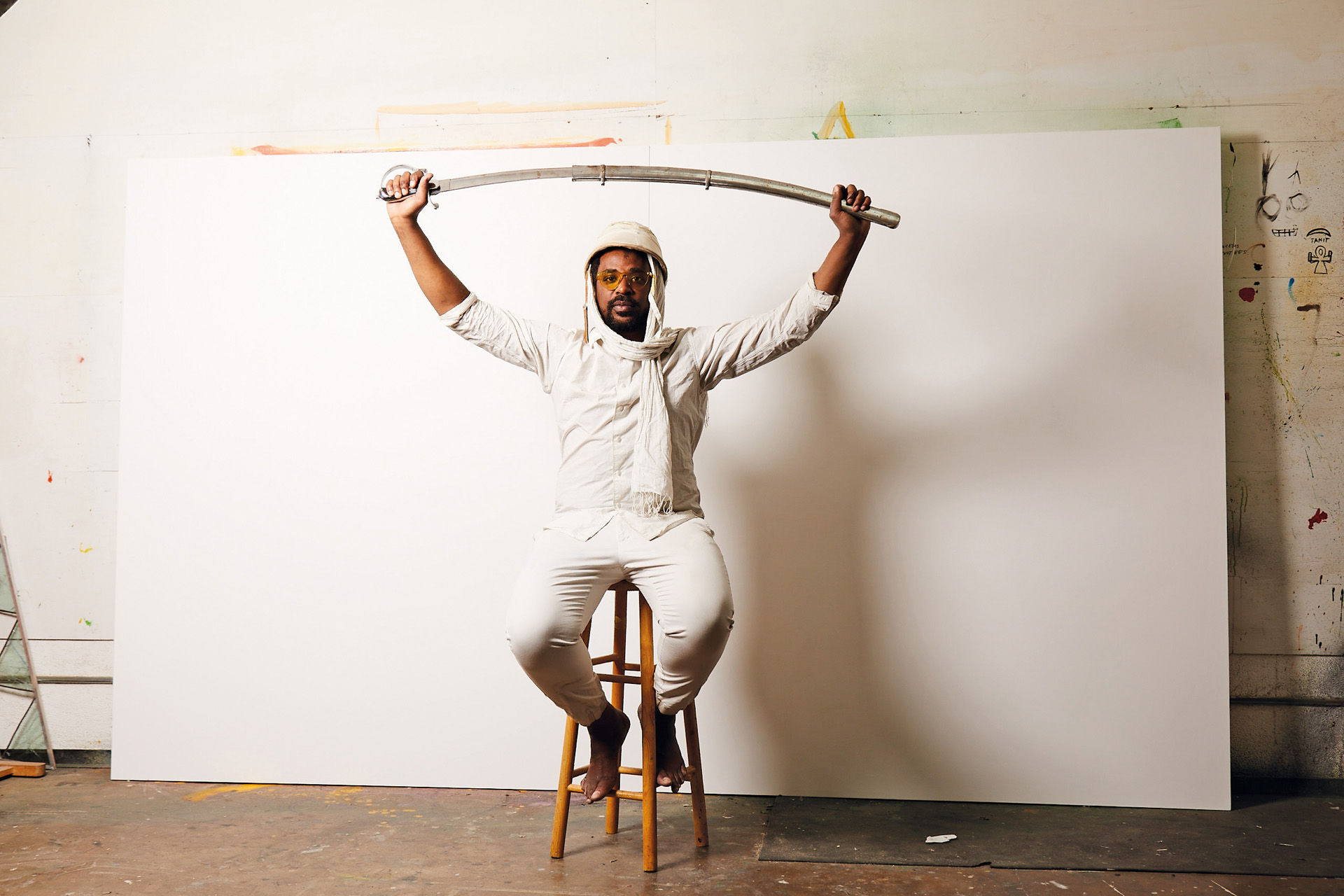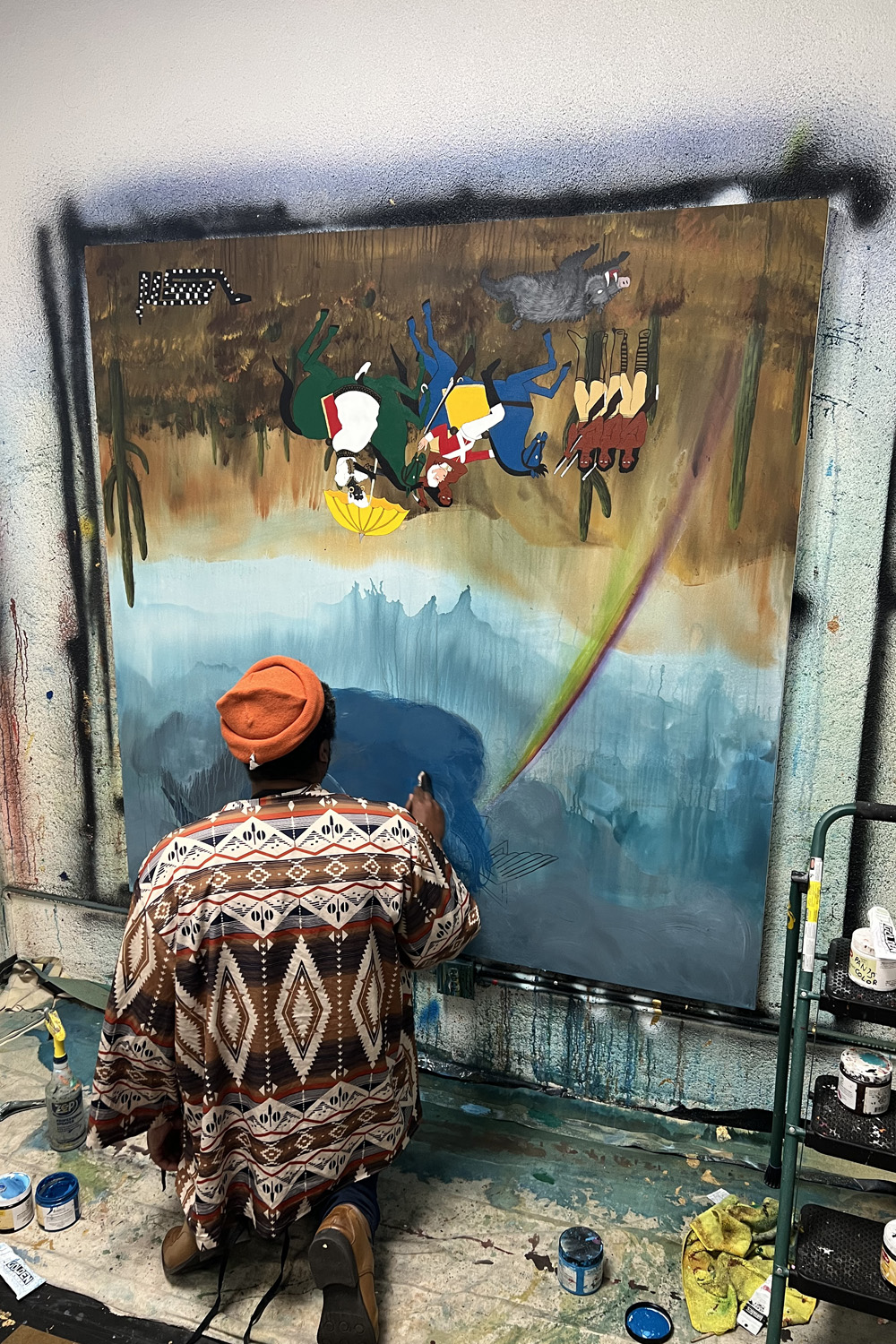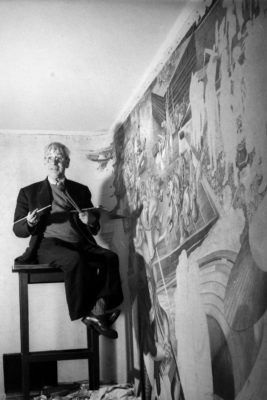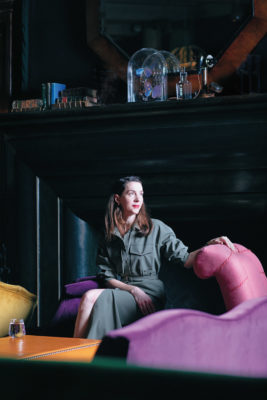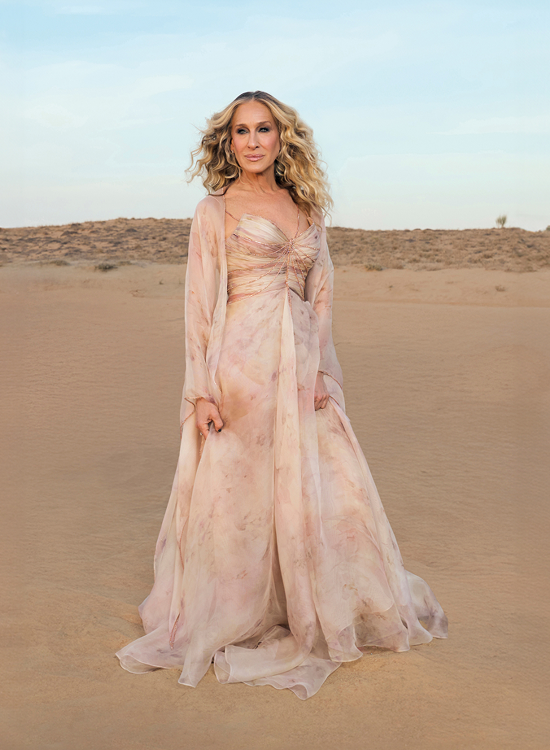
Revision Time: How Umar Rashid’s Canvases Rewrite Colonial History
By
8 months ago
Umar Rashid's solo show at London’s Tiwani Contemporary opens on 13 November
Olivia Cole meets US artist Umar Rashid, whose layered canvases – in major museums around the world – offer a revisionist view of imperial and colonial history.
In The Studio With Umar Rashid
‘My imagination was on top form,’ says Umar Rashid of his childhood on the south side of Chicago in the early 80s. As a seven year old, Rashid would be dropped off with his older brother by his dad at the library with their lunch. ‘I would just read books all day,’ he remembers. Another treat was seeing Seurat’s A Sunday on La Grande Jatte at the Art Institute of Chicago. ‘I felt like I had everything at my fingertips,’ he says, ‘because we went to all these places.’
The reality was a bit different though and, despite those memories, times could be tough. Rashid’s parents had made their own way as artists; his dad a playwright, actor and drama teacher, and his mother, who died in 2022, travelled the world as an actress, just at the moment where drama and civil rights came together. ‘She loved the world as the world,’ he says of her influence. ‘She would say, “Oh you know, the people in France eat this way” or “people in Nigeria do this”.’
With their work in civil rights, both Rashid’s parents wanted him to see history beyond the limits of an American perspective. That’s a promise on which he has truly delivered: his writing at school drew attention for retelling familiar narratives, which has become his signature in the development of his art. Paintings from his ongoing Frengland series – depicting a fictional universe fusing the warring colonial powers of England and France – have homes in some of the world’s best museums, from the Hammer Museum in LA (his adopted home city) to the Zeitz collection in South Africa.
Rashid’s canvases might be fantastical but they are never far from reality, as he pays careful attention to appalling details – whether from the torments of history or their grim contemporary resonances. For his next show – at Tiwani Contemporary in London’s Mayfair – he is focused on his schoolboy fascination with Admiral Nelson, as well as British history in India and the Caribbean. Egyptian hieroglyphs and Native American folk stories have provided inspiration, but with layers and layers of influences, the style is all his own. In a new departure, Rashid is simultaneously working on large-scale sculptures for a public installation in San Francisco exploring untold experiences of the Gold Rush.
There’s a verifiable sadness, he says, in getting so close to history in detail. Having first found success as a rapper – under the alias Frohawk Two Feathers – a huge and varied library of music helps him spend long hours in psychologically difficult places. He works by day at his studio in east LA, but retreats to the ‘sanctity of home’ in nearby Highland Park and has a longstanding nocturnal routine, going back to his days of performing music at night.
Rashid’s children are now too old (at 15 and 12) to be playing amid the work at hand, but his art took on an urgency when he became a dad. ‘I don’t ever want them to feel the way I felt, he says of coming of age as a black American. That commitment to keeping the stories of injustice vivid and alive for the next generation, and to trying to change the landscape, keeps him at that kitchen table through the night.
Umar Rashid is part of group show Black Gold: Stories Untold at Fort Point, San Francisco (6 June–2 November 2025; for-site.org); his solo show at London’s Tiwani Contemporary runs 13 November 2025 to 17 January 2026 (tiwani.co.uk).


